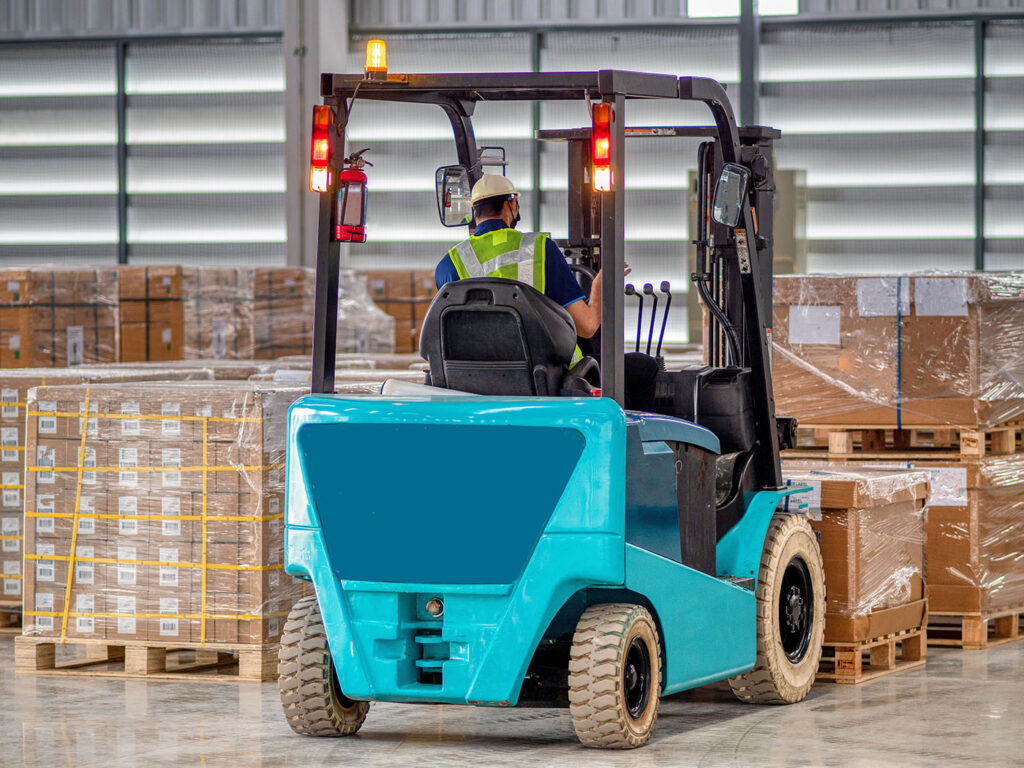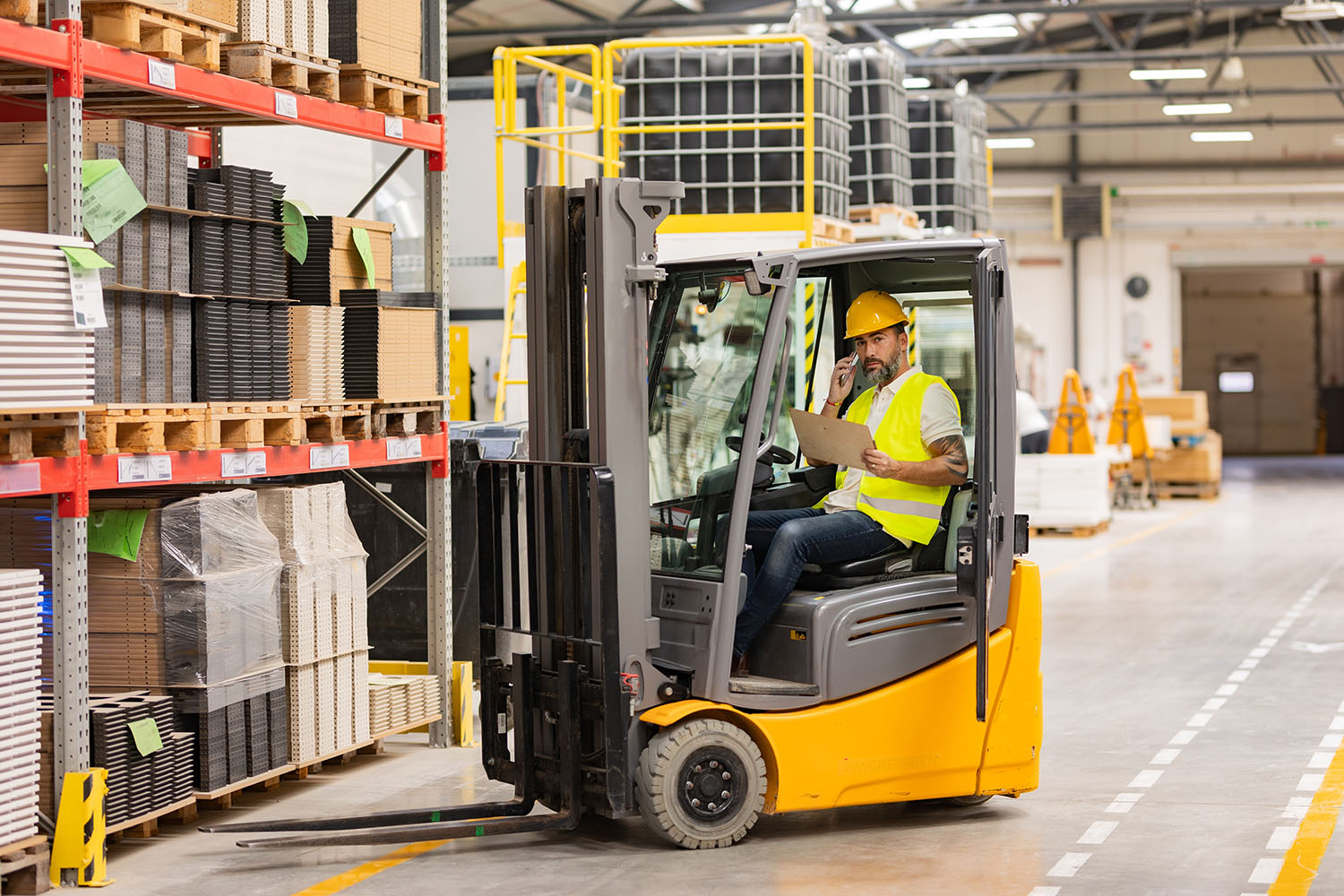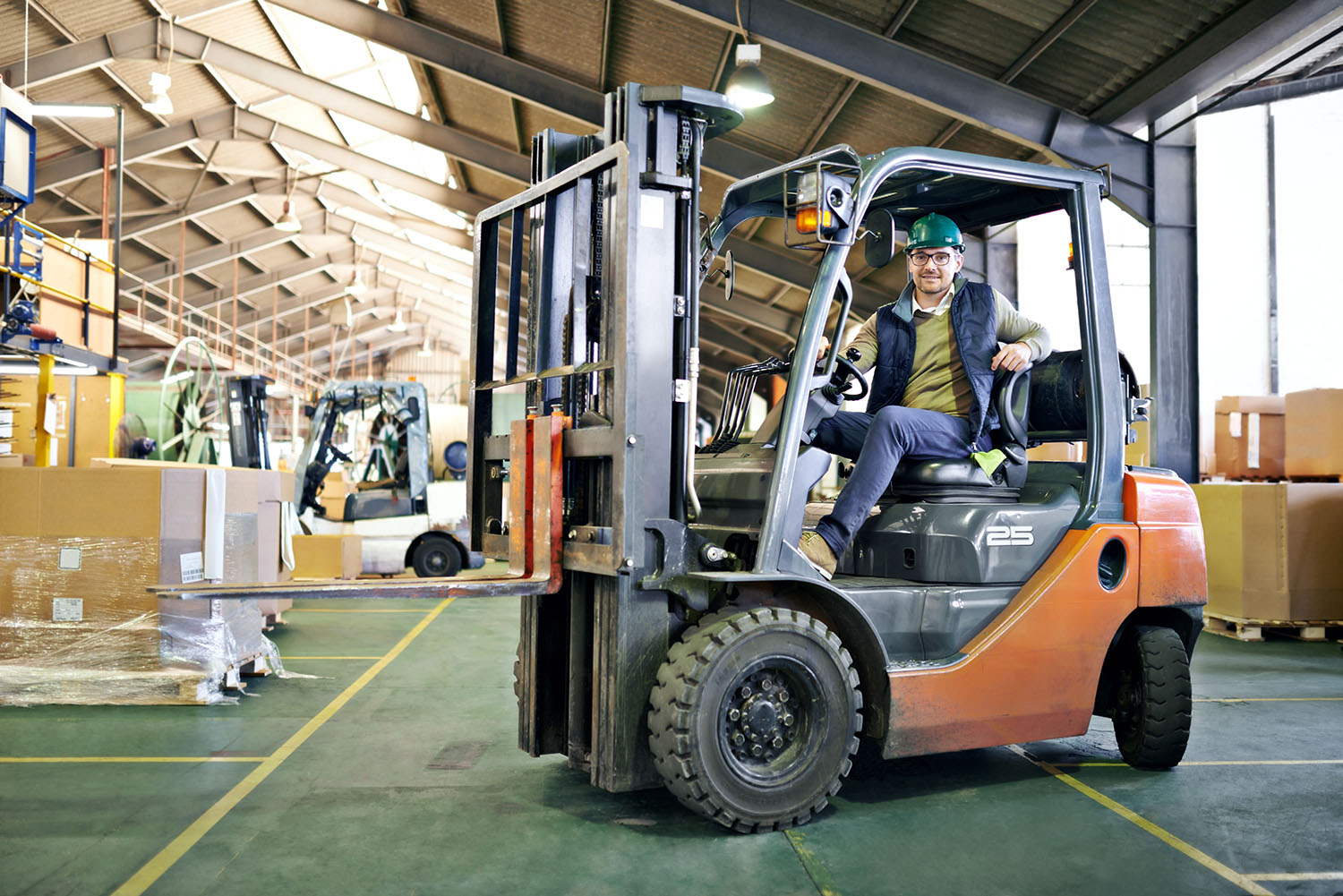Table of Contents
There’s no question that your warehouse forklifts are the backbone of your operations. You need to move goods throughout the warehouse and maintain efficiency and safety every step of the way. At the same time, it’s critical to ensure forklift safety at all times to protect your team and the products.

One of the foundational principles of maintaining safety in the warehouse is to stay consistent with pre-operation forklift inspections. The process is more than just checking a box: it’s essential to ensure that your forklifts are in optimal condition so that you can keep everyone safe.
OSHA Forklift Inspection Requirements
Keep in mind that OSHA has specific inspection requirements you must follow for forklift safety. These mandates include pre-operation inspections to make sure the forklifts are in safe working condition. Not only do the inspections need to happen, but everything must be documented. This full-scope inspection should include the tires, brakes, steering, controls, and warning systems. Before the forklift is started, both visual and operational checks should be completed.
There are both legal and safety implications for these forklift pre-operation inspections. For example, if you don’t comply with these requirements, then you could be facing penalties and fines if a workplace audit is required. Additionally, regular inspections help to improve forklift safety, which reduces the risk of injuries on the job.
Essential Forklift Inspection Points
Make sure that all of these inspection points are included in your daily routine:
- Visual Inspection: Check everything for any signs of wear or damage. Also, check necessary fluid levels such as the coolant, oil, and brake fluid.
- Operational Checks: When testing forklift operations, make sure that the tires and wheels are in good condition. Also, the function of the steering and brakes for operational safety should be evaluated. Finally, additional safety features need to be checked, such as the function of the lights and horn.
- Safety Features: Various safety features should always be in working order. If there are issues with these safety features, then the forklift should remain parked until it can be repaired. Necessary safety features on the inspection include seatbelts, warning devices, and how well the forklift stops in an emergency.
- Final Checks: Other things should be included in the final check, including battery charging or fuel levels and ensuring the forklift meets load capacity requirements for the scope of work.
If any issues are discovered during the pre-operation inspection, then they should be reported immediately. Repairs should always be a priority before the forklift goes back into operation.
How to Conduct a Forklift Pre-Operation Inspection
The most important thing you can do is systemize your daily forklift pre-operation inspection. Create a checklist and train all operators on the best practices that should be followed when they are completing these inspections. Your team needs a step-by-step inspection process to use, including written documentation, to maintain the highest standards at all times.
Various tools and documentation can be helpful to ensure forklift safety. For example, have a visible copy of the forklift inspection checklist that matches the forklift model that is being inspected. The inspection can be documented with a pen and paper, or there are various digital tools that can be used for your inspection records. Additionally, make sure to keep up with maintenance logbooks that track repairs and servicing. Finally, the operator should be using necessary personal protective equipment (PPE), such as gloves and safety glasses.
Forklift Safety Tips for Operators
Every operator should be highly trained in the forklift inspection processes, as well as proper handling techniques when they are operating the forklift. Not only do operators need to know these best practices, but you should also inform them about the common mistakes to avoid, such as skipping inspections, overloading the forklift, improper load handling, or reckless driving.
Creating a Forklift Safety Checklist for Operators
It’s worth the investment to create a well-designed forklift safety checklist. This list should include all the steps that must be followed for the visual inspection, operational inspection, load handling, and more.
Keep in mind that different types of forklifts require different care and maintenance. So, you can have customized checklists based on the specific type of equipment that includes model-specific details. For example, the checklist will vary based on the type of forklift being used (electric vs internal combustion engines).
Forklift Maintenance and Inspection Best Practices
Ultimately, the goal of scheduling regular forklift inspections is to stay ahead of the necessary maintenance tasks and ensure that issues are addressed in the earliest stages. If you find minor wear and tear, a quick repair can correct these issues and help you avoid bigger hazards in the future. Forklift safety is much higher when you are taking a proactive approach with maintenance and repair services for your equipment.
FAQs on Forklift Pre-Operation Inspections
Why is a pre-operation inspection important?
This pre-operation inspection is necessary to identify any potential issues, such as wear and tear, in the earliest stages. The goal is to ensure both safety and compliance at all times.
How often should a forklift be inspected?
At a minimum, daily forklift inspections should occur before the equipment is operated. If you have multi-shift operations, then consider the benefits of an inspection before each shift.
Who is responsible for conducting the inspection?
Typically, the forklift operator holds the responsibility for performing the inspection before using the equipment.
What should I do if I find a defect during inspection?
If you find any issues during the forklift inspection, then these problems should be reported right away. The forklift should be taken out of service until it can be repaired.
Talk to the Forklift Experts for Repair and Maintenance Services
At ACE Equipment, we prioritize the quality and safety of your equipment. If you need assistance with your forklift maintenance or repairs, then reach out to us any time. Not only do we offer repair services, but we can also help with forklift purchases and rentals. Contact us for more information about available services.


